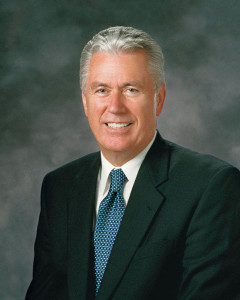This is the second part in a series on service. The first part covered the problems associated with service. This part looks at the reason behind service. The bulk of this part of the series lies in the quotes from the six General Authorities I have randomly selected. I will make my comments and observations between and around their quotes.
Note: All the references for the talks from whence I pulled these quotes are listed at the bottom of this article. Please do click on each link and read the talks. They are all wonderful in their own right.
The act of serving
Anyone can perform service. Prisoners have been made to perform community service, but that doesn’t make them saints. So what is it about service that makes a difference in a person’s life? Why is service so important?
The Lord stated in Moses 1:39 that his work and his glory is “to bring to pass the immortality and eternal life of man.” Considering the capacity most of us have for getting ourselves into trouble and for our habit of slipping into open revolt against our Father’s will, his goal is indeed a lofty one.

Elder Dieter F Uchtdorf
If God behaved like we do, he would have washed his hands of us long ago. But instead he serves us, and sends us servants to serve us. These servants use his priesthood power to bless our lives and to invite us to learn of God. We are even commanded through the covenants we make with him to serve each other. He spends all this energy and all these resources entreating us to choose Him and his eternal plan for our happiness. Service is the demonstration of charitable patience. It is the consequence of charitable love. For love, without selfless demonstration is no love at all.
The act of serving is important. But the reason behind our service is even more important. President Uchtdorf said this:
“The what of priesthood service teaches us what to do.
The why inspires our souls.
The what informs, but the why transforms.”
He was addressing the brethren of the priesthood, but the principle behind his statement is the same. Anyone can serve, but only those who learn why they are serving accomplish the changes service is meant to make in our souls. Elder Dallin H. Oaks echoed this sentiment when he said, “In sacred temple ceremonies we covenant to sacrifice and consecrate our time and talents for the welfare of others.”3
Elder Oaks further demonstrated this principle with this quote from C.S. Lewis.
C.S. Lewis explained this teaching of the Savior: “The moment you have a self at all, there is a possibility of putting yourself first—wanting to be the centre—wanting to be God, in fact. That was the sin of Satan: and that was the sin he taught the human race. Some people think the fall of man had something to do with sex, but that is a mistake. … What Satan put into the heads of our remote ancestors was the idea that they could ‘be like gods’—could set up on their own as if they had created themselves—be their own masters—invent some sort of happiness for themselves outside God, apart from God. And out of that hopeless attempt has come … the long terrible story of man trying to find something other than God which will make him happy.”
A selfish person is more interested in pleasing man—especially himself—than in pleasing God. He looks only to his own needs and desires. He walks “in his own way, and after the image of his own god, whose image is in the likeness of the world” (D&C 1:16). Such a person becomes disconnected from the covenant promises of God (see D&C 1:15) and from the mortal friendship and assistance we all need in these tumultuous times. In contrast, if we love and serve one another as the Savior taught, we remain connected to our covenants and to our associates.

Baptism
Many of us spend a lot of our time trying to avoid having to live like God wants us to live because we want to invent our own path back to God. But the reality is that there is only one way, the way He has declared to us. Any other path of living leads us away from God and toward Satan. That is the harsh reality.
Even our baptismal covenant requires that we take upon ourselves the name of Christ and live as he lived, lives of service. Mosiah 18:8-10.
… As ye are desirous to come into the fold of God, and to be called his people, and are willing to bear one another’s burdens, that they may be light;
9 Yea, and are willing to mourn with those that mourn; yea, and comfort those that stand in need of comfort, and to stand as witnesses of God at all times and in all things, and in all places that ye may be in, even until death, that ye may be redeemed of God, and be numbered with those of the first resurrection, that ye may have eternal life—
10 Now I say unto you, if this be the desire of your hearts, what have you against being baptized in the name of the Lord, as a witness before him that ye have entered into a covenant with him, that ye will serve him and keep his commandments, that he may pour out his Spirit more abundantly upon you?
Do you see any part of that covenant that allows us to sit on our laurels and not serve others? Is there any part of that basic covenant that allows us to live in such a way as to protect our own self interest? The Savior held nothing back in his service to us. He requires that we learn to hold nothing back in our service to others as well.
Final Thoughts
We serve others because God serves us and we are trying to become like Him. We also serve others because salvation cannot be had in a vacuum. We need the service others provide for us. Others need the service we provide for them. This is an integral part of the Father’s plan for our happiness and our eventual exaltation.
Exaltation is a group effort made possible through individual determination and individual participation. But make no mistake, it requires others to be involved in the process. Just as Christ served us, so we must learn how to serve others in like manner.

To read more of Kelly Merrill’s articles, click here.
It is in the service of others that we learn the true meaning of becoming selfless and the meaning of charity, the highest of all virtues.
In the next part of the series we will explore some of the difficulties and challenges of learning how to serve. Serving isn’t always easy, no matter how pure our intentions.
Following are the talks used to support this series of articles.
1 Dieter F. Uchtdorf
https://www.lds.org/general-conference/2012/04/the-why-of-priesthood-service?lang=eng
2 David B. Haight
https://www.lds.org/general-conference/2001/04/gratitude-and-service?lang=eng
3 Dallin H. Oaks
https://www.lds.org/general-conference/2009/04/unselfish-service?lang=eng
4 Steven E. Snow of the Presidency of the Seventy
https://www.lds.org/general-conference/2007/10/service?lang=eng
5 M. Russell Ballard
https://www.lds.org/general-conference/2011/04/finding-joy-through-loving-service?lang=eng
6 Carlos H. Amado first quorum of seventy
https://www.lds.org/general-conference/2008/04/service-a-divine-quality?lang=eng
About Kelly P. Merrill
Kelly Merrill is semi retired and writes for https://gospelstudy.us. He lives with his wife in Idaho. His strength is being able to take difficult to understand subjects and break them down into understandable parts. He delights in writing about the gospel of Christ. Writing about the gospel is his personal missionary work to the members of the Church and to those of other faiths who are wanting to know more about Christ's gospel and His Church.






